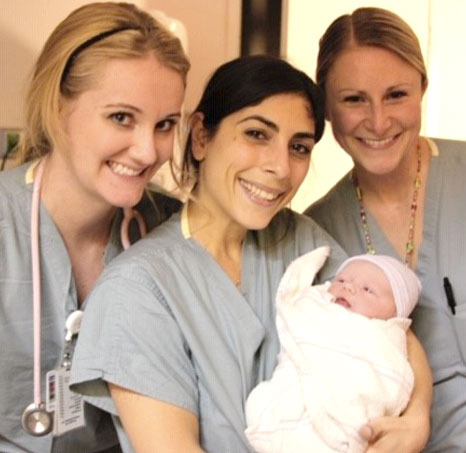

Lulu Nurse is dedicated to inspiring the nursing community in particular, as well as the general population, to make positive life-style choices in an effort to prevent illness and improve societal health and wellness.
Although nurses are the backbone of medicine and educate patients and their families about disease and healthy lifestyles to prevent illness, too many nurses do not take time for self-care.
Chronic work-related stress has been identified as a contributing factor to nurses’ negative health behaviors and negative coping techniques. They often turn to unhealthy eating habits and sedentary lifestyles.
For the sick it is important to have the best.
-Florence Nightingale
59%
of the nurses are overweight (BMI > 25kg/m2) or obese
(BMI > 30 kg/m2) (3)
26-28%
of U.S. hospital nurses get the recommended 150 minutes of aerobic physical activity per week (3)

68%
of nurses
sleep 7 hours
or less per day (7)

58%
of nurses are high risk for not eating regularly due to their work schedules and demands at work (2)

16%
of nurses eat 5 or more servings of fruits or vegetables per day (1)

35%
eat 3 or more whole grain servings per day (1)
Night shift work may be correlated with an adverse risk profile for chronic disease depending on the age range at which night shift work occurs (4,5,6,8,9)
Longer durations of shift work are associated with higher cancer and cardiovascular disease risk. (4,5,6,8,9)
Barriers to healthy eating among nurses may include lack of time, prohibitive cost, and the lack of availability of healthy foods at the workplace
References:
(1) American Nursing Association. (2017).
Executive summary: American nursing association health risk appraisal.
https://www.healthynursehealthynation.org/en/about/research/(2) Nahm, E. S., Warren, J., Zhu, S., An, M., & Brown, J. (2012).
Nurses’ self-care behaviors related to weight and stress.
Nursing Outlook, 60(5), e23-e31.
(3) Priano, S., Hong, O., & Chen, J. (2018).
Lifestyles and health-related outcomes of U.S. hospital nurses: A systematic review. Nursing Outlook, 66(1), 66–76.
https://doi.org/10.1016/j.outlook.2017.08.013(4) Ramin, C., Devore, E., Wang, W., Pierre-Paul, J., Wegrzyn, L., & Schernhammer, E. (2015).
Night shift work at specific age ranges and chronic disease risk factors. Occupational and Environmental Medicine (London, England), 72(2), 100–107.
https://doi.org/10.1136/oemed-2014-102292(5) Schernhammer, E.S., Kroenke, C.H., & Laden, F., & Hankinson, S.E. (2006).
Night work and risk of breast cancer. Epidemiology, 17, 108–11.
(6) Schernhammer, E.S., Laden, F., Speizer, F.E., Willet, W.C., Hunter, D.J., Kawachi, I., & Colditz, G.A. (2001).
Rotating night shifts and risk of breast cancer in women participating in the Nurses’ Health Study. Journal of the National Cancer Institute, 93, 1563–8.
(7) Stimpfel, A., Fatehi, F., & Kovner, C. (2019).
Nurses’ sleep, work hours, and patient care quality, and safety. Sleep Health, 6(3), 314–320.
https://doi.org/10.1001/jama.2016.4454(8) Vetter, C., Devore, E., Wegrzyn, L., Massa, J., Speizer, F., Kawachi, I., Rosner, B., Stampfer, M., & Schernhammer, E. (2016).
Association between rotating night shift work and risk of coronary heart disease among women. JAMA : the Journal of the American Medical Association, 315(16), 1726–1734.
https://doi.org/10.1001/jama.2016.4454(9) Wang, X-S., Armstrong, M.E.G., Cairns, B.J., Key, T.J., & Travis, R.C. (2011).
Shift work and chronic disease: The epidemiological evidence. Occupational Medicine, 61, 78–89.
